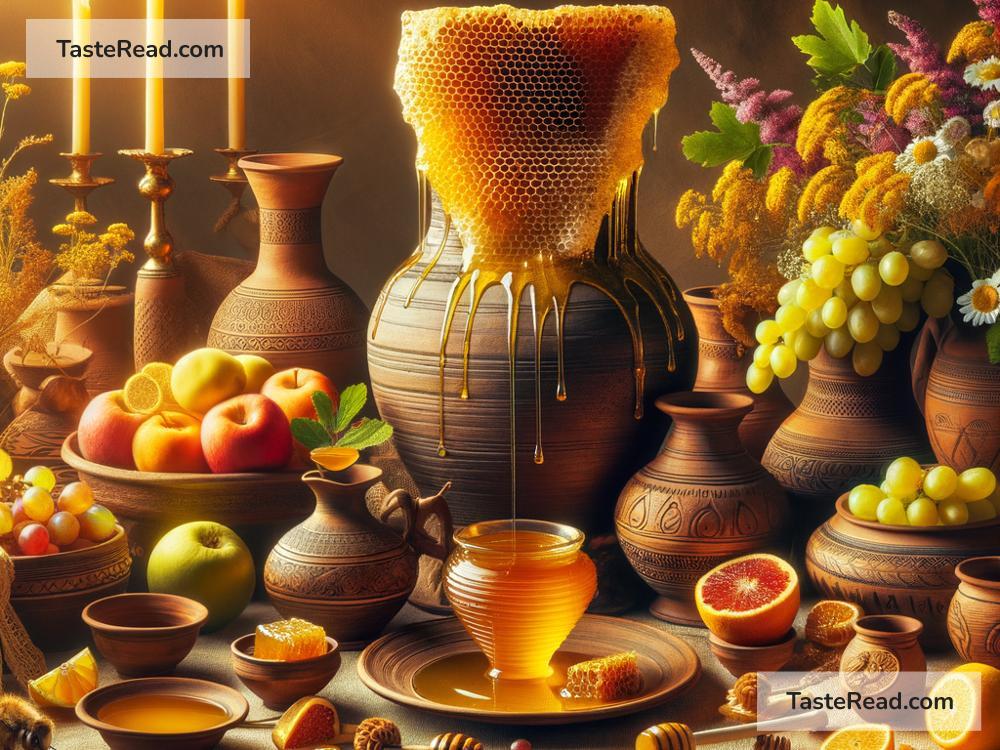Ancient Stories of Honey: Nectar of the Gods
Honey has been loved by humans for thousands of years. Sweet and golden, it’s more than just food—it’s a symbol of health, wealth, and even divine power. Many ancient stories from cultures around the world call honey the “nectar of the gods.” Let’s explore these fascinating tales and how honey was seen as a magical gift in the past.
Honey in Ancient Mythologies
Honey appears in many ancient myths and legends. It wasn’t just a sweet treat; people believed it came from gods or had supernatural powers. To ancient civilizations, honey seemed magical. It never spoiled, had healing properties, and could be used for food, medicine, or rituals.
The Greeks, Egyptians, Indians, and several other cultures saw honey as sacred. It was tied to nature’s wonder and the divine. They believed honey was a heavenly substance that connected humans to higher powers.
Honey in Greek Mythology
Greek mythology is full of stories about honey. The Greeks believed honey was a gift from Mount Olympus, the home of their gods. Bees, which made honey, were often seen as sacred creatures tied to goddesses of nature, fertility, and rebirth.
One of the famous stories is about the infant Zeus, the king of the Greek gods. When Zeus was born, his mother, Rhea, hid him in a cave to protect him from his father, Cronus, who wanted to harm him. Legend says Zeus survived by eating honey provided by sacred bees that lived in the cave.
Honey also connected to the Muses, the divine spirits of art, poetry, and music. Ancient Greeks believed that honey inspired creativity. Poets were often said to have “honey on their lips” because their words were sweet and divine-like honey itself.
Honey in Egyptian Culture
To the ancient Egyptians, honey was a symbol of immortality. They believed honey never spoiled, and this everlasting nature made it a gift of the gods. Honey was frequently used in religious ceremonies, medicines, and even burial rituals.
Egyptian gods were often linked to bees and honey. For instance, they called the Nile River Valley the “Land of Milk and Honey,” symbolizing its fertility and abundance. Honey represented life and prosperity in their worldview.
The Egyptians loved honey so much that jars of it were placed in tombs for the deceased to enjoy in the afterlife. Archaeologists have actually discovered pots of honey in Egyptian tombs that are thousands of years old—and remarkably, the honey is still edible!
Honey in Indian Texts and Beliefs
India has a deep spiritual connection to honey. Honey appears in the sacred texts of Hinduism, such as the Vedas and Upanishads. These ancient writings describe honey as “Madhu,” a divine nectar that represents purity and life energy.
In Hindu mythology, there’s a story about the gods and demons churning the ocean to create a magical elixir called Amrita, the nectar of immortality. Honey is often compared to Amrita because it is considered pure and life-giving.
Honey was not only prized in spiritual rituals, but it also featured heavily in traditional Indian medicine, called Ayurveda. Honey was—and still is—used to treat illnesses, improve digestion, and boost energy. Ancient Indian texts describe honey as one of nature’s most precious gifts.
Honey in Nordic Legend
Even in the cold northern lands of Scandinavia, honey held mystical significance. In Norse mythology, there’s a story about the Mead of Poetry. This legendary drink was a combination of honey and magical substances, making it the source of all wisdom and poetic inspiration.
The tale goes that two groups of gods, the Æsir (war gods) and the Vanir (fertility gods), made a peace pact after a long war. To seal this agreement, they created a magical being named Kvasir, who was wise and knowledgeable. When Kvasir was killed by two dwarves, his blood was mixed with honey to create the Mead of Poetry. Anyone who drank this mead became a master of wisdom, art, and storytelling.
Honey as a Universal Symbol
Honey wasn’t just seen as divine in these myths—it had real practical value. Honey was one of the earliest forms of sweetener before sugar was common. Because of its natural antibacterial properties, honey was also used to heal wounds and treat illnesses.
Ancient people observed how bees worked tirelessly to create sweet honey from flowers, and they saw this process as miraculous. Honey became a symbol of hard work, abundance, and the sacred connection between humans and nature.
Conclusion
The idea of honey as the “nectar of the gods” exists in many ancient cultures, from the Greeks and Egyptians to the Indians and Norse people. Its sweetness, healing properties, and long-lasting nature made it seem magical—something beyond ordinary food.
Even today, honey continues to be treasured for its flavor and health benefits. When you enjoy a spoonful of honey, you’re not just tasting sweetness; you’re experiencing a gift that ancient humans once believed connected them to the divine.
Honey has been more than just a food across history—it is a symbol of life, creativity, and the wonders of nature. Truly, it’s no surprise so many ancient cultures thought of honey as a divine treasure!


